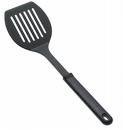My August project will be to summarize some helpful spiritual disciplines, and design some easy-to-understand materials. Tell me what disciplines or spiritual formation topics you’d like to know about, for yourself, your small group, church, family, or other uses. Different forms of prayer? Lectio Divina? Meditation? Fasting? Sabbath? Examen? Spiritual Direction? It’s time to put all these graduate school studies to good use!
Tag: spiritual discipline
Prayer / Sacred Reading
Lectio Divina means sacred reading, and it can be a wonderful way to involve Scripture to meditate and pray to our Creator. It is a worshipful time away with God that helps to build a time of close communion with the Divine. It isn’t a time of pouring a heap of requests at God’s feet, but it’s a time of respectful listening for God, waiting, and allowing God be made known.
A friend of mine from New Zealand describes this spiritual practice in simple terms. (click the link) I will add more posts about it myself, later. I thought many of you could benefit from his input. Enjoy a time of lectio divina with your maker soon.
And please get back to me (leaving a comment, or on the contact page) with what it was like for you (whether positive, negative, or neutral).
God with a Spatula
 When I was in under my parent’s care, I was hit with a spatula among other things, in what my parents called discipline with “the rod”. This was picked over “time outs,” or being grounded, and my back side broke many a spanking implement–wooden rulers and cooking spoons, frosting spatulas, pancake spatulas, and probably other stuff I’ve blocked out psychologically. (I won’t even go into the things that didn’t or couldn’t brake on my backside!)
When I was in under my parent’s care, I was hit with a spatula among other things, in what my parents called discipline with “the rod”. This was picked over “time outs,” or being grounded, and my back side broke many a spanking implement–wooden rulers and cooking spoons, frosting spatulas, pancake spatulas, and probably other stuff I’ve blocked out psychologically. (I won’t even go into the things that didn’t or couldn’t brake on my backside!)
I guess you could say it sort of got pounded into my mind that God must operate the same way. To me, it seemed he would get peeved, and then, lower the boom. So, when bad things would happen, it was probably because of some kind of Divine spatula. I thought God was like a human, and most likely like a human parent who spanks.
Well, nope. God is “Other.” How we’ve interpreted Scripture has often reflected how we’ve been parented. In other words, we figure that God gets ticked off, and gets out the belt, and begins whipping his kids, until they “get it,” or have been punished sufficiently. Actually he usually lets them get away with murder, if you want to know the truth. But I won’t digress on that right here, and now.
Some years ago I heard a visiting pastor in my church say, “God will sometimes need to give you a whipping. You probably need it, and deserve it.” I maced him. Okay, I didn’t, but I thought if I hadn’t already known God through the character of the Incarnation (Jesus), and fully accepted the fleshly God/man, as the same God, I would have decided then and there to become Buddhist, or something other than whatever this guy was. What a crappy religion if this is the God he describes! This way, God sounds like a craptastic, unloving parent who needs medication. I thought this preacher guy was probably trying to manipulate the audience, and I wasn’t going to fall for his weirdness. I had already encountered God deeply, and I wasn’t going to throw it all away because this preacher pictured God as punitive, and wielding a spatula, or perhaps a thick belt, as I bent over to get my beating. God doesn’t have a spatula. He’s gracious.
Challenge: To not make haste
Chapter 5 of John Ortberg‘s book, “The Life You Always Wanted”, is called, “The Practice of ‘Slowing’.” He details a discipline, or spiritual way, of living an unhurried life. As a way to challenge the typical tendency to rush, Ortberg challenges his readers to look for the longest checkout line, and wait in that one. Sounds frustrating, right? The idea is to challenge how one views time, actions, and life as a whole.
John’s experiment gives a person a jump start strategy to begin to enjoy all of life, even the little things that get rushy. No part of living is wasted. Something that was once frustrating can actually turn into a positive. Instead of an urgent hardship, the experience is controlled by the person, rather than happening to them. It is also experienced for it’s own benefit, not just as a means to something else.
Regarding time and busyness: The practice moves the practitioner away from being a habitual slave to urgency, and a indentured servant to the clock. As it turns out, an unhurried life will create more opportunities than one ever thought possible. Creating cushions of time is even likely to save one time, and establish invaluable connections, not possible for a routinely rushed individual.
Boiling it down, “being unhurried” is to say one is, “moving, acting, and existing without urgency or haste.” In an emergency, this way must be abandoned for a time. But, in normal circumstances, why spend life so quickly, since we can’t get it back?
Things once unnoticeable, become things such as pleasant surprises, little awakenings, newfound interactions, joys, plus experiences and insights aplenty. When we plan to give ourselves extra time to experience an unhurried life, or at least, far larger chunks of it unhurried compared to before, we enjoy more peace of mind, and well-being.
I’ve personally found it’s also a wonderful surprise to hear more Divine “whispers,” and see more Divine “appointments” placed in our path, once we sideline our hurried manner, and ease into a more organic way of living.
Try John’s checkout line experiment, at least once. If you do, please leave a reply about it. (Did it make you insane, or was it valuable?) And-if you do it more than 3 times, in two weeks, I’d really like to hear if it’s changed anything for you. I have a new contact page if you’d prefer that method, or just leave a comment below.
Thanks.
Have a slower day :)
Being Content to Forage?
 In the USA, a country of both abundance and excessive waste, dumpster diving is certainly a fringe activity. However, urban foraging is gaining a large following over recent years because of tougher times. Among certain folks, the urge to reuse, recycle, and of course, get free stuff, can be more of an actual lifestyle some opt for daily. It’s surprising the websites that offer tips and tricks for the habitual modern foragers. As I’ve been trimming our consumption way down, the mindset of living with less actually turns into a fun challenge. I don’t worry about the things I used to, like wearing the hip styles, and being trendy/fashionable. (I’ve set my own “trends” since the 80s out of necessity/poverty, now I’m just not so ashamed about it–on my terms.)
In the USA, a country of both abundance and excessive waste, dumpster diving is certainly a fringe activity. However, urban foraging is gaining a large following over recent years because of tougher times. Among certain folks, the urge to reuse, recycle, and of course, get free stuff, can be more of an actual lifestyle some opt for daily. It’s surprising the websites that offer tips and tricks for the habitual modern foragers. As I’ve been trimming our consumption way down, the mindset of living with less actually turns into a fun challenge. I don’t worry about the things I used to, like wearing the hip styles, and being trendy/fashionable. (I’ve set my own “trends” since the 80s out of necessity/poverty, now I’m just not so ashamed about it–on my terms.)
Doesn’t this forage business sort of bring us to a point to ponder about contentment, too? We never will find it in Things, new things, (and old things as well.) The perfect car, or shoes, or latest gadget ends up at the dump, and even the perfect meal ends up…well, you know.
Frugality can be a spiritual discipline we do, at least now and then, in which we skim away clutter that is actually internal. The crutch of things often changes us to perceive priorities wrongly. We don’t need much. What we want, and what we feel we need, get mixed up. It’s happened to me, trust me.
Without awareness or discipline, our Want matures into a monster that masquerades as a felt need that is actually internal. It is the problem that has nothing to do with external things. And it’s not a “problem,” but an opportunity for growth, and learning the ways of contentment, which brings gladness and peacefulness.
More details about urban foraging (specifically) here.
Did you ever “dumpster dive”?
(I’ve rescued some nifty items on the way to the landfill.)
photo credit


